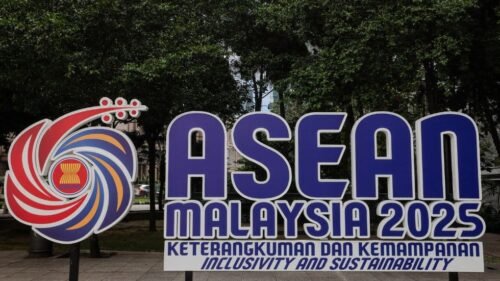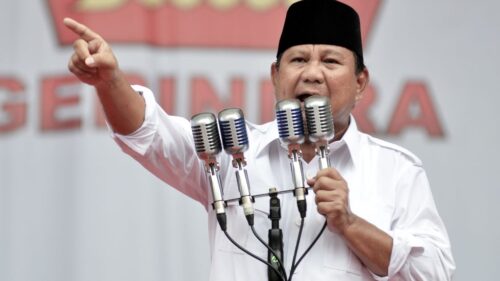Indonesia stands at a pivotal geopolitical crossroads. Its hallmark bebas-aktif (independent and active) diplomacy now collides with surging public solidarity for Palestine and deepening ties to China, Russia and notably Saudi Arabia. That collision is visceral: on the one hand, millions of Indonesians pour moral capital into public demonstrations, vigils and charity drives, demanding that Jakarta speak and act with unmistakable compassion; on the other, statecraft is being reshaped by large commercial bargains and hard strategic choices that bind supply chains, energy security and investment flows.
Indonesia, therefore, faces the delicate task of translating raw public empathy into principled, rules-based diplomacy while protecting essential national interests: safeguarding maritime corridors, diversifying energy sources and leveraging its distinctive religious and multilateral voice to build humanitarian bridges rather than deepen polarization. How Jakarta navigates this tension will determine whether its foreign policy becomes a source of national unity or a theater of domestic division.
Capital for strategic resilience
Indonesian President Prabowo Subianto’s July 2025 visit to Jeddah marked his first official trip to the Kingdom since taking office. There, he cochaired the inaugural Saudi–Indonesia Supreme Coordination Council with Crown Prince MBS, signing private-sector agreements worth around $27 billion across clean energy, petrochemicals and mineral resources.
These investments anchor realpolitik (power, leverage, security, resources and influence — binding Jakarta’s strategic choices and shaping its future): Saudi Arabia has agreed to ramp up crude and derivative supplies to Indonesia, streamline energy supply chains and deepen mineral resource cooperation — areas where Jakarta seeks security and economic leverage. For Indonesia, 60% of its maritime trade flows through Asian waters, including one-third via the South China Sea — so securing these corridors is not optional; it’s existential.
Equally, disruptions in the Strait of Hormuz — through which nearly 20% of global oil flows — would have cascading effects on Indonesia’s energy security and inflation (which 83–84% of these energy exports are destined for Asian markets, including Indonesia), reinforcing the urgency of diversifying strategic partnerships with Gulf economies and maritime democracies.
Public outcry over Palestine captures authentic compassion but also risks simplifying complex geopolitical fault lines. While Indonesia passionately supports humanitarian access, its public sentiment often conflates moral outrage with unfiltered solidarity toward Iran’s issues. Responsible statecraft must elevate empathy into principled diplomacy anchored in governance, pluralism and human rights.
Beyond hardware and strategy, Indonesia has an opportunity to lead through its unique brand of religious diplomacy. Under its stewardship, interfaith initiatives at the 2022 R20 Summit and bilateral dialogue platforms have showcased its ability to foster religious harmony while advancing conflict resolution agendas; growing influence within the Organization of Islamic Cooperation (OIC) positions Jakarta to champion interfaith dialogue, coordinate refugee diplomacy and potentially mediate post-war recovery efforts in Gaza and Syria — a moral imperative aligned with Pancasila values and a strategic asset in global diplomacy.
ASEAN leadership and Indo-Pacific security role
Simultaneously, Indonesia’s multipolar balancing act is heightening tensions within the Association of Southeast Asian Nations (ASEAN). Diverging opinions on the South China Sea, Myanmar and maritime security pose a threat to the bloc’s unity. As ASEAN’s backbone, Indonesia must take the lead, not retreat. Creating a democratic caucus within ASEAN, comprising countries such as the Philippines and Timor-Leste, with a focus on maritime security, energy management and principled diplomacy, would address the leadership gap and strengthen collective resolve.
Indonesia’s defense ties underscore both challenges and opportunities. Between 2015 and 2023, Jakarta procured over $1.1 billion in defense equipment from Russia, while Exercise Komodo 2025 hosted 38 countries and 19 warships — a prime platform for deeper ASEAN–ANZUS (a collective security agreement between Australia, New Zealand and the US) collaboration. Using these foundations, Jakarta can build a selective security architecture that enhances deterrence without compromising ASEAN centrality.
Embedding this vision into ASEAN requires formal steps. Proposing a ministerial-level ASEAN–ANZUS Security Forum under the Charter, rotating ASEAN participation in the Multilateral Naval Exercise Komodo (MNEK) — including Australia, New Zealand and the US — and establishing a regional intelligence fusion cell would encourage transparency and shared responsibility.
True deterrence depends on capability-building. A joint ASEAN–ANZUS Innovation Fund could finance drone networks, secure communications, disaster-response robotics and require technology transfer to Indonesian small and medium enterprises. Such public–private synergy would rewrite Southeast Asia’s strategic narrative from consumer to creator.
Embedding values and innovation in foreign policy
But complicated institutional structures must be matched by resilient public understanding. Indonesia’s pluralist democracy — rooted in Pancasila (Indonesian political philosophy) — provides fertile ground for an expansive civics initiative: integrating media literacy, religious nuance and the foundations of international relations into national education.
This is a moment for Jakarta to move decisively, not as a passive balancer but as the Indo-Pacific’s indispensable diplomatic broker.
Critically, embedding India and Japan into ASEAN’s strategy enriches Indonesia’s balance: India accounts for 10.6% of ASEAN’s trade, providing democratic solidarity; Japan’s Fukuda Doctrine of nonmilitarized partnership remains a vital stabilizing force. Engaging them alongside ANZUS broadens Indonesia’s strategic footprint within the Indo-Pacific.
Indonesia can lead a richly layered Pancasila diplomacy by forming an ASEAN–ANZUS Climate Security Task Force to co-develop maritime early-warning systems and ecological deterrence measures. This effort would create an Indo-Pacific Digital Commons for secure 5G/6G networks and counterdisinformation frameworks that align Western cybersecurity protocols with ASEAN data-sovereignty norms.
Additionally, priority initiatives include launching a Decolonizing Security Initiative (similar to the one in Ukraine) to amplify the voices of marginalized regional communities. This initiative aims to institutionalize cooperative threat assessments and shift the security conversation from competitive posturing to shared stewardship, with partners from ASEAN, the OIC and the UN convening expert working groups.
Another important initiative is the establishment of a Pandemic Preparedness Pact. This pact would create interoperable epidemiological modeling centers, regional reserves of personal protective equipment (PPE) and medical supplies, mutual assistance protocols, and financing options. It will be codesigned with the WHO, Asian Development Bank and donor governments to protect lives and livelihoods.
Other initiatives include activating a Young Leaders Exchange to systematically harness diaspora talent, civil society networks and university partnerships for cross-border policy innovation, trust-building and crisis diplomacy. Indonesia also needs to establish a Supply Chain Resilience Grid that maps and insures critical maritime and overland routes, funds alternative logistics nodes and mobilizes public-private investment to alleviate chokepoints and support communities against economic shocks.
Each initiative must be governed by transparent metrics, time-bound milestones and inclusive oversight, so that strategic ambition is matched by accountability and practical deliverables. This is all aimed at ensuring Indonesia moves beyond mere hedging to shape a rules-based, multipolar Indo-Pacific order rooted in democratic values and pragmatic cooperation.
Voices from within Indonesia reflect this ambition. The previous Foreign Minister (FM), Retno Marsudi, reminded leaders at the ASEAN–China Post-Ministerial meeting, “ASEAN must not become an arena for competition or a proxy for any external power”— a stark rebuke of zero-sum geopolitics. Former FM Marty Natalegawa framed the Indo-Pacific vision as “open, transparent and inclusive, promoting dialogue and upholding international law”— a template for the security architecture proposed.
Yet Jakarta must also acknowledge internal limits: countries like Cambodia, Laos or Myanmar favor China’s model. A subtle 46th ASEAN Summit statement within ASEAN’s 2025 annual review, reaffirming Southeast Asia’s neutrality and collective resolve, would push back against bloc fragmentation.
Indonesia now faces a choice: cautious balancing or assertive brokerage. Indonesia stands at a pivotal moment: will it continue to be a reactive balancer, pushed by global forces and digital trends? Or will it leverage its democratic principles, institutional foresight and diplomatic creativity to become ASEAN’s steadfast anchor?
Jakarta can shape a resilient Indo-Pacific by establishing democratic foundations for strategic partnerships, integrating them into ASEAN institutions, encouraging regional innovation and promoting civic maturity.
[Avantika Varghese edited this piece]
The views expressed in this article are the author’s own and do not necessarily reflect Fair Observer’s editorial policy.
Support Fair Observer
We rely on your support for our independence, diversity and quality.
For more than 10 years, Fair Observer has been free, fair and independent. No billionaire owns us, no advertisers control us. We are a reader-supported nonprofit. Unlike many other publications, we keep our content free for readers regardless of where they live or whether they can afford to pay. We have no paywalls and no ads.
In the post-truth era of fake news, echo chambers and filter bubbles, we publish a plurality of perspectives from around the world. Anyone can publish with us, but everyone goes through a rigorous editorial process. So, you get fact-checked, well-reasoned content instead of noise.
We publish 3,000+ voices from 90+ countries. We also conduct education and training programs
on subjects ranging from digital media and journalism to writing and critical thinking. This
doesn’t come cheap. Servers, editors, trainers and web developers cost
money.
Please consider supporting us on a regular basis as a recurring donor or a
sustaining member.
Will you support FO’s journalism?
We rely on your support for our independence, diversity and quality.








Comment